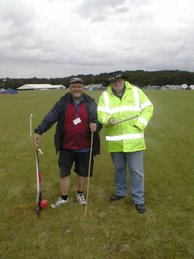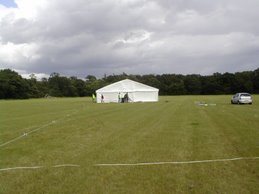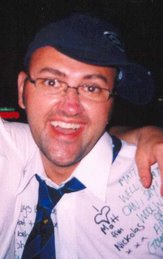
The last two weeks have been filled with sunshine (mostly), friendship and once in a lifetime experiences. All those here can walk away saying not only have been at the 21st World Scout Jamboree, but they saw Scouting’s Sunrise creating a new chapter in Scouting’s history.
As evening fell everyone gathered in the arena for the last party of the Jamboree, the closing ceremony. Expectations running high, tissues at the ready, preparing for the eventful and heart-melting ceremony that had to happen eventually.
As with all the other ceremonies throughout the Jamboree, we were not disappointed. The show was a riot of colour, music and plenty of reminiscence of the last ten days. The highlight had to be with the final rendition of ‘Jambo’, where literally everybody in the 40,000 strong crowd sang along with the cast and the ‘Adventure’.
But don’t worry. This is not goodbye! There is always Sweden in 2011, many of the friends made here will be there too, whether as participants again, for those that are lucky to still be young enough, or as members of the service team, for those who just never grow up!
And as a final goodbye, the people here would like to thank everyone involved who made it happen, every un-sung hero who is there, in the background, working throughout the night.
Those not need needing glory, but needing a thank you anyway.
From the media team here at the World Scout Jamboree, we thank you and say goodbye and good luck.





































